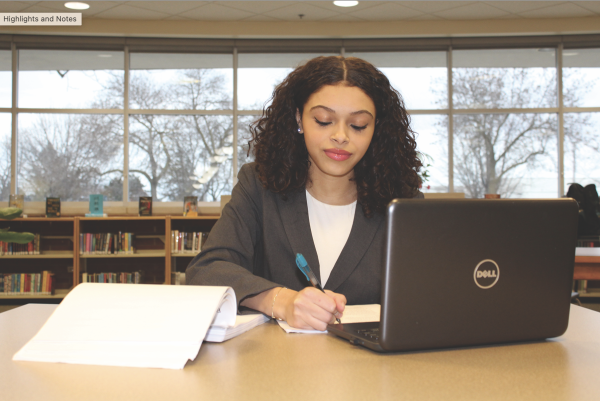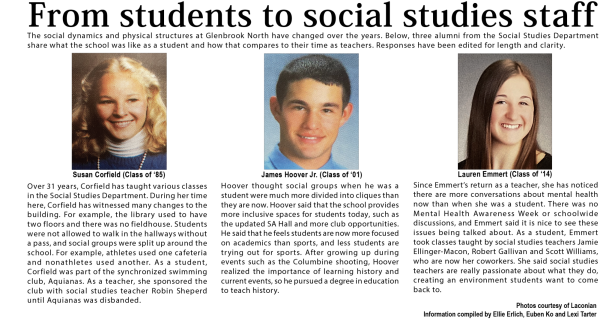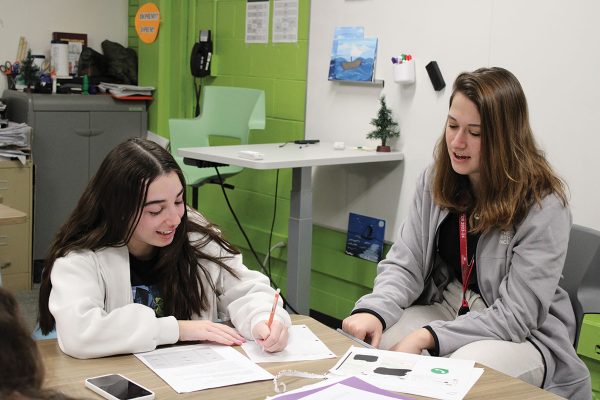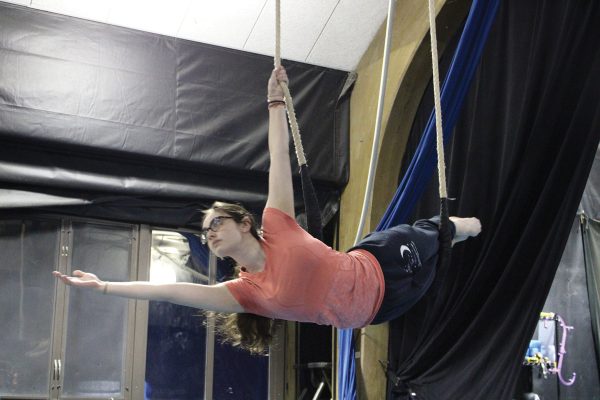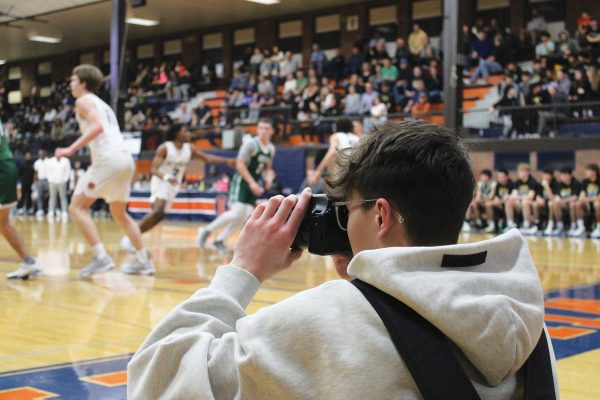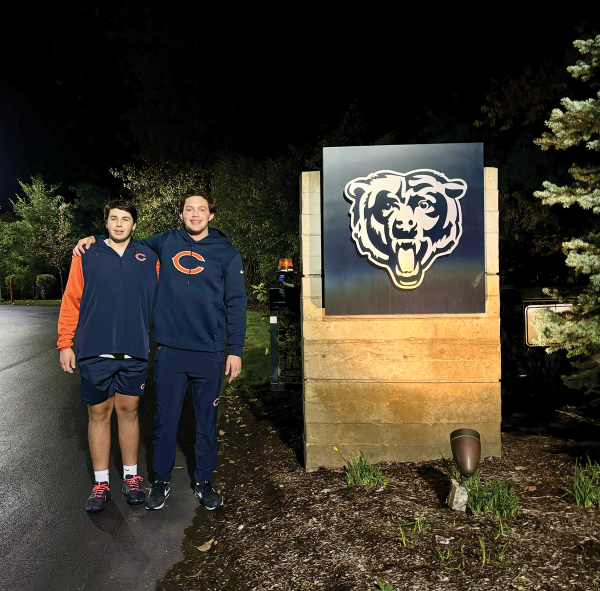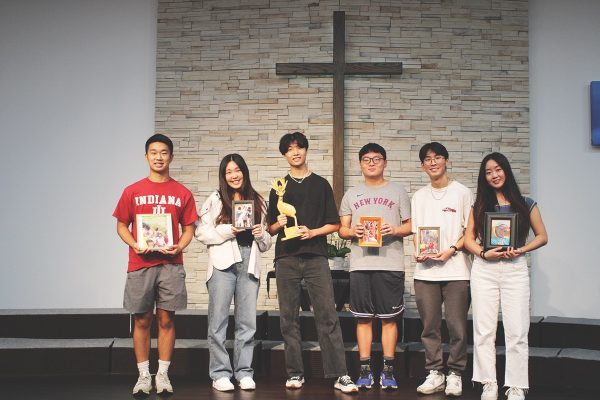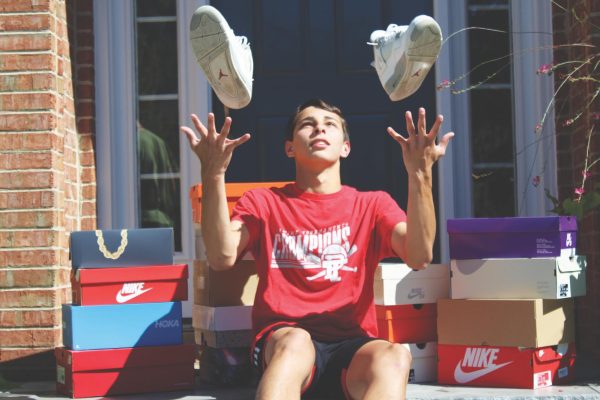Sophomore shares personal experiences as ‘donor kid’
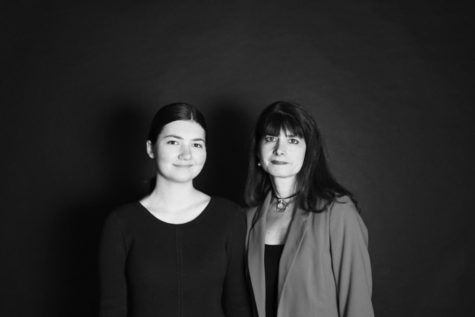
As sophomore Allanah Elster stood in front of thousands of scientists, doctors and lawyers, a visual presentation was displayed behind her, including an image of her face photoshopped alongside a cartoon sperm graphic to represent her biological father, an anonymous sperm donor. Allanah created this slideshow to speak about her experiences as a “donor kid” at the American Academy of Assisted Reproductive Technology Attorneys, also known as AAARTA, conference that took place in September 2017 in Anaheim, Calif.
Allanah said she was selected to speak at the conference due to her experience of being a child produced via artificial insemination, a process by which pregnancy is achieved through the deliberate injection of semen in an asexual manner.
According to Allanah, the experience of speaking at the convention provided a unique viewpoint about reproductive science to those in the reproductive field. She interacted with a variety of professionals, as well as women considering their own potential use of artificial insemination. Her speech focused on how she has approached this topic with peers as she has grown up.
“I talked a lot about what it was like when I was younger and explaining why I didn’t have a father, because that’s one of the main things people ask,” said Allanah. “When I was really young, I was very proud of [being a donor kid]. As a toddler, I would just go around telling everybody. Around middle school age, I didn’t tell a lot of peoplebecause it’s difficult to explain. … It kind of just delves into your life, and it’s something I didn’t want to deal with. Now, I just have a concise ‘Oh, I’m the product of an anonymous sperm donation.’ It’s an easy thing that I’m very comfortable with now.”
Allanah’s mother Nanette Elster decided to pursue artificial insemination after Allanah’sgrandfather became terminally ill, said Allanah. Nanette had made him a promise that she would have a child before he died.
“[My mother had] always wanted a kid, and that’s something [my grandfather] wanted for her,” said Allanah. “I’m actually named after him. His name is Allen Howard, and my name is Allanah with an ‘H’ at the end. [My mother] carried through on her promise, and no matter what, even though she was single, she decided that she wanted to have a child.”
Allanah said she often finds the need to explain her unique family dynamic to others. Although she now has a stepfather, Allanah believes that her grandmother, who lives with her, takes on the role of a father figure.
Prior to the conference, Allanah had spoken to classes taught by her mother, an assistant professor at a local university, about her perspective on bioethics, the study of ethical issues that may arise from the growth of technology in life sciences.
“I’ve been [lecturing to my mother’s] classes for a while,” said Allanah. “I’ve gotten to know [many]people in the world of bioethics, so when [AAARTA was] having this convention, they wanted a personal perspective on the experience, and they asked me if I was willing to do it.”
According to Nanette, the 2017 conference was centered around the offspring of sperm donation and how families can address legal and emotional issues that may arise from this experience. Nanette saw the conference as an opportunity for her to learn more about Allanah’s perspective on her upbringing without her biological father.
“Being able to navigate [her identity] is one of the things [Allanah] talked about and what it means for her to grow up this way,” said Nanette. “And that was really interesting for me to hear.”
The mediator at the convention was Andrea Braverman, associate professor of obstetrics and gynecology and psychiatry at Thomas Jefferson University. After listening to Allanah’s speech, Braverman said Allanah’s capability to present such a mature topic was very impressive.
“I think [Allanah’s] whole story was moving,” said Braverman. “That she was able to speak to this room full of professionals with intelligence and humor and emotion was amazing. I think what really struck me was her ability to reflect on her own experience and understand how her thoughts and feelings have evolved from the time she was young until [now].”
According to Allanah, one of the more challenging aspects of sharing her experiences has been the lack of public knowledge about the practice of sperm donation.
“A lot of people don’t know exactly what [artificial insemination] is,” said Allanah. “It hasn’t really been humanized for them. That’s something I’ve talked to people about.
“[Being a donor kid is] definitely a part of me and has become more so. It’s something that I claim, and it is a community that I have, but I haven’t fully explored it at this point. There are a lot of other people out there who have different experiences from mine that I want to hear about.”




